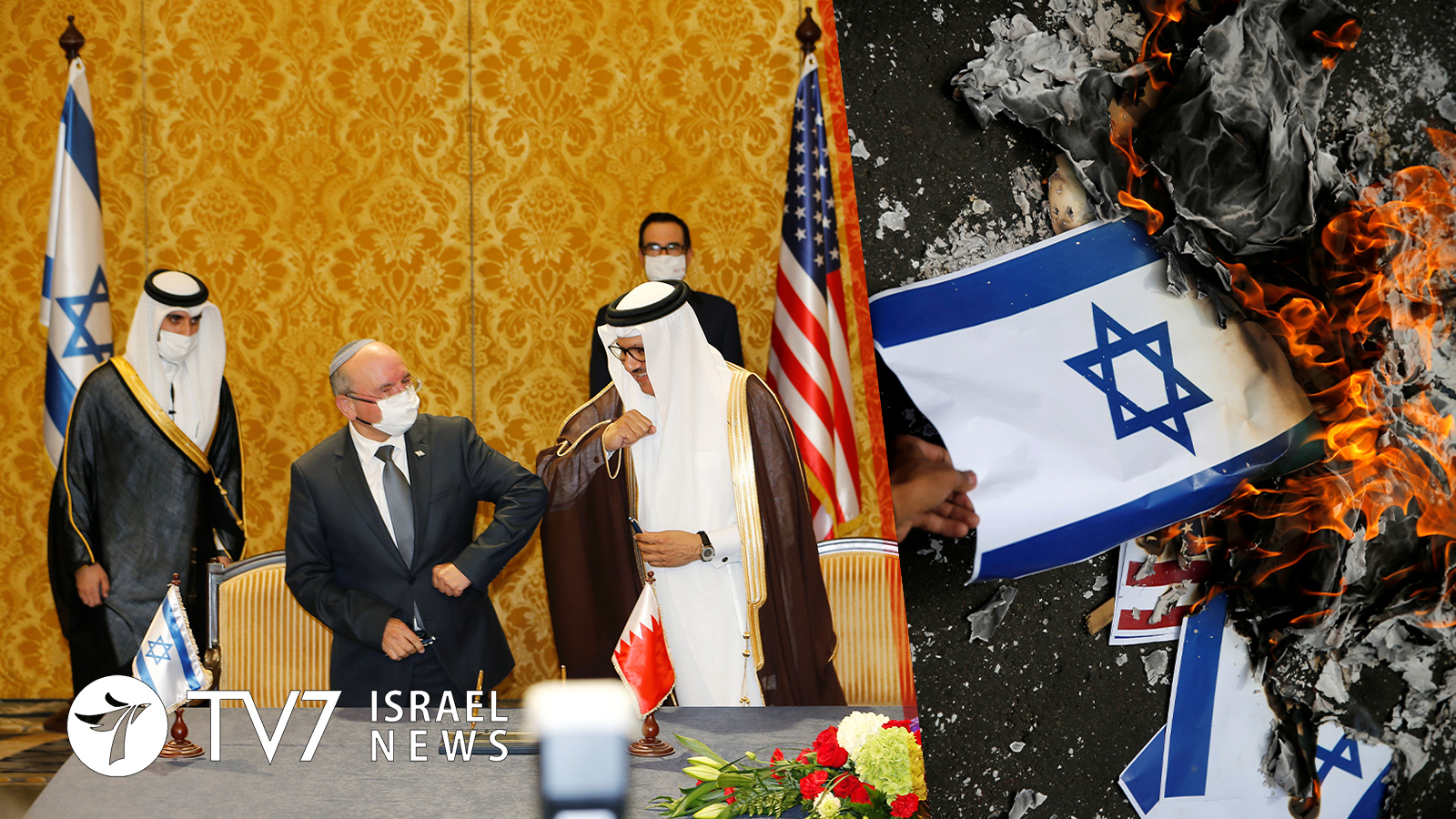The Islamic State (ISIS) terror group issued a call on its followers to attack Westerners, oil pipelines and economic infrastructure in Saudi Arabia for supporting Gulf state agreements with Israel.
“Targets are plenty … Start by hitting and destroying oil pipelines, factories and facilities which are the source (of income) of the tyrant government,” said ISIS Spokesman Abu Hamza al-Muhajir in a recorded speech broadcast on the group’s official telegram channel.
He stated that the Kingdom, which is the world’s largest oil exporter and home of Islam’s holiest sites, should be targeted for supporting Arab normalization with Israel by opening its airspace for Israeli flights to neighboring Gulf states.
The latest threats surfaced as Bahrain formalized ties with Israel.
The two countries signed an agreement to broaden cooperation yesterday, during a visit to Manama by delegations from Israel and the United States that arrived together aboard an El Al Israel Airlines charter flight from Ben Gurion airport in Tel Aviv. The El Al flight flew over Saudi Arabia, an accommodation by the Gulf’s powerhouse – which has itself so far resisted U.S. appeals to normalize ties with Israel.
During an arrival ceremony at Manama airport, the leader of the Israeli delegation, National Security Adviser Meir Ben-Shabbat, spoke Arabic while expressing Israel’s hope to host a Bahraini delegation in the near future. He described the occasion as a “promising beginning” and said the Israeli officials were was accepted “with open arms, with warmth and cordiality.”
Ben-Shabbat was greeted by Bahraini Foreign Minister Abdullatif Al-Zayani. The two touched elbows in lieu of a traditional handshake due to the coronavirus pandemic. Al-Zayani said, “it was indeed an historic visit to start opening relations between both countries,” and that engagement and cooperation are the most effective and sustainable way of bringing about genuine and lasting peace in the region.
Bahrain, host to the U.S. Navy’s Fifth Fleet, signed a “Declaration of Peace, Cooperation, and Constructive Diplomatic and Friendly Relations” with Israel at a White House ceremony on 15 September, a document that fell short of a formal treaty. The pact, collectively known as the Abraham Accords, was also signed by the United Arab Emirates.
The diplomatic breakthroughs, overseen by US President Donald Trump, is a foreign policy achievement during his bid for re-election next month. For the US allies, it is also chance to close ranks on Iran more overtly.
The Bahraini government, led by a Sunni Muslim minority that rules over a Shi’ite majority population, has said the deal protects its interests from Iran.
Washington has promoted the normalization deal not only as an anti-Iran bulwark, but also a potential economic bonanza. U.S. Treasury Secretary Steve Mnuchin, who accompanied his country’s delegation to Bahrain, proclaimed that the accord is an important step in regional stability and “just the beginning of the work that is going forward.” While speaking earlier with reporters on the El Al flight en route to Manama, Mnuchin said, “I think the opportunity is way beyond just investments – it’s in technology, building various different businesses – and in the case of Bahrain as well, really expanding the opportunities for them quite, quite, quite dramatically.”
Several memoranda of understanding were also signed during the ceremony. According to a list provided by a Bahraini official, the bilateral agreements include the trade, air service, telecommunications, finance, banking and agricultural sectors.
On hand at the ceremony was prominent Bahraini diplomat, Houda Ezra Ebrahim Nonoo, who is one of only 34 Jews who currently live in the kingdom. The Jewish community largely dispersed in the wake of violent backlash against them following Israel’s founding in 1948 and the 1967 Six Day War. Nonoo became the country’s first Jew and third woman to be appointed ambassador, when she served as Bahrain’s top envoy to the United States 2008 to 2013. She told reporters that the Gulf state plans to formally reopen Manama’s old synagogue for the Jewish festival of Purim on 25 February.
Today the US and Israeli delegations are in the UAE, where they are forging addition agreements on bilateral commerce. Tomorrow they will accompany the UAE’s first delegation to Israel for the signing of a deal to establish 28 weekly commercial flights between Tel Aviv’s Ben Gurion airport, Dubai and Abu Dhabi.
